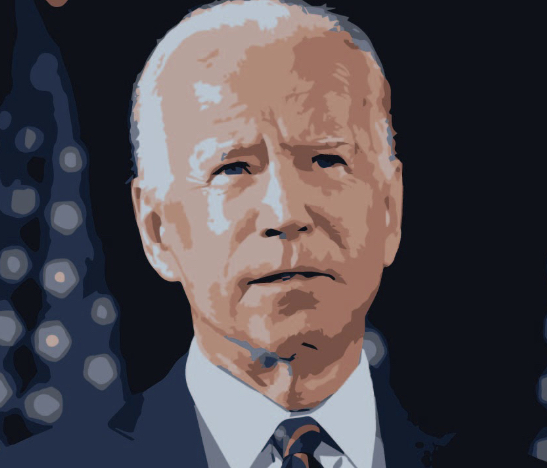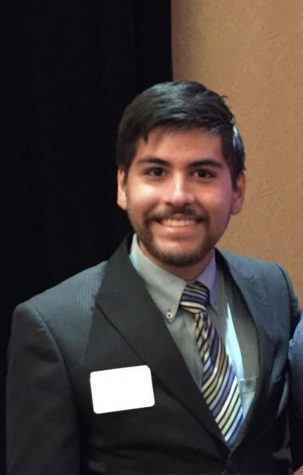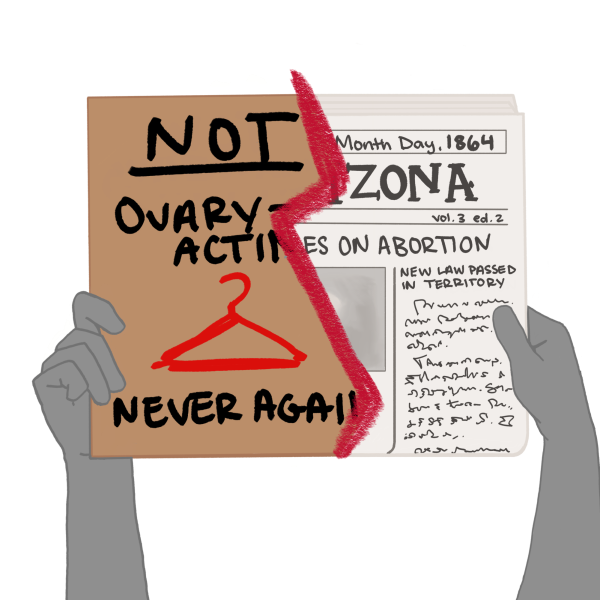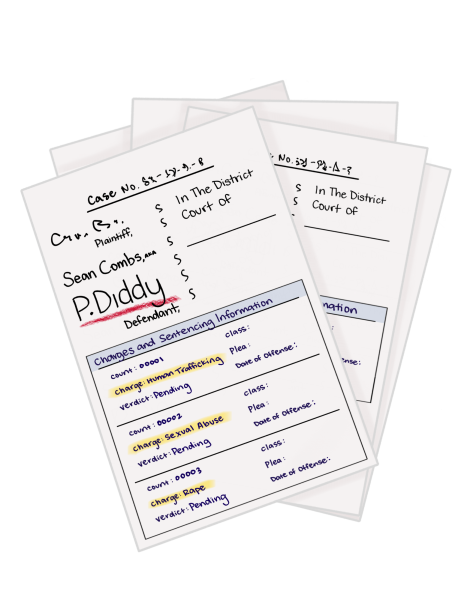The final debate: key takeaways

Graphic by Ethan Gullett
October 24, 2020
The first debate was chaotic; the second debate never was. On Thursday night, the final debate of this year’s presidential election kicked off in Nashville, Tennessee, promising that each candidate not speaking would have their microphone muted during the other candidate’s initial two-minute answer to stave off the interruptions which plagued the first debate. As with that first debate, the night was split into six themes.
The first topic was COVID-19. The moderator noted that 16,000 people had been recorded as dying of COVID since the first debate and asked both candidates how they would lead during the next, winter stage of the virus. Trump claimed that he had far exceeded expectations from an earlier estimate of 2.2 million American deaths and that a vaccine would be distributed in weeks. He also reminded the audience that he had recently had COVID and gotten better with the help of the antibody treatment — “some might call it a cure” — Regeneron. All this was marshaled in support of the idea that the virus would soon “go away” and that the country was “rounding the corner.”
Biden, unimpressed, started off by reminding the audience that 220,000 Americans had died since the start of the virus and stating that Trump should be automatically disqualified on the basis of that alone. He lambasted Trump for not having a comprehensive plan and still not telling people to wear masks; he also alluded to a plan of his own that would involve economic stimulus to help businesses stay closed.
Trump was then asked to clarify his particularly optimistic timelines for a vaccine to be ready, which he doubled down on despite scientists’ predictions it wouldn’t be ready until 2022. Biden was asked about his prior comments that public trust in the efficacy and safety of a COVID-19 vaccine would be damaged if it was associated by the public with Trump; he said that transparency from scientists would convince people the vaccine was trustworthy.
The two also quibbled over Biden’s alleged characterization of Trump’s February ban on travel from China as xenophobic, whether or not it would be a “dark winter,” whether Trump takes responsibility for the damage to the country and whether or not more shutdowns might be necessary (Trump said no, Biden said maybe).
On the second topic, national security, the candidates were asked about recent FBI statements that Iran and Russia were actively attempting to interfere in elections. Biden declared that “any country that interferes will pay the price” and said Trump’s adviser Rudy Giuliani was a Russian asset.
Trump responded by bringing up allegations that Biden had financially benefited from relationships with Russia, including receiving $3.5 million due to his friendliness with the former mayor of Moscow. He also said Biden was the preferred candidate of Russia because he was “weak,” referencing the 2014 annexation of Crimea by Russia from Ukraine that happened during the Obama-Biden administration.
Biden responded to these allegations of corruption by flatly announcing he had never “taken a single penny from any foreign country, ever” and reminding the audience that while he had released 22 years of tax returns, Trump still has never released any. Trump responded with his usual claim, that he can’t release tax returns until an IRS audit is finished, and stated that while the investigation by special prosecutor Robert Mueller into alleged Russian collusion by Trump hadn’t implicated him directly, a similar investigation on Biden and his family’s dealings in Ukraine would find “plenty of dirt.” (Once more, Biden said plainly there was no evidence of wrongdoing from him or his family.) The candidates also claimed that the other was soft on China and North Korea.
The third section, on American families, started with the usual statements on health care. Trump bragged that he had gotten rid of Obamacare’s individual mandate and claimed, erroneously, that Biden wanted to ban private health care. Biden noted that over three years into his administration, Trump still had no real plan with which to replace Obamacare and corrected the record that he didn’t want to abolish private health care but build on Obamacare with a public option. Both were then asked why another stimulus bill hadn’t passed, with both blaming obstructionism from the other candidate’s party for the delay.
On immigration, both blamed the other’s administration for “kids in cages” and Biden pilloried Trump for causing the plight of hundreds of kids who had allegedly been separated from parents at the border that could now not be found. Trump noted that he had stopped the “catch-and-release” policy under which people making illicit border crossings were let go with a court date; he claimed that only those with “the lowest IQs” ever came back for their court dates.
The next section, on race in America, was, again, a mud-slinging contest almost identical to the same section in the first debate. Biden stated America was riven with institutional racism from its beginning and that he understood why Black parents gave their children “the talk” about minimizing the danger of encounters with police. Trump accosted Biden for his role in writing the 1994 Crime Bill and falsely claimed Biden called young Black criminals “super predators.” Trump repeated his common claim that he is the best president for the Black community since Abraham Lincoln. Biden responded by reminding the audience of various racist statements Trump had made over the years; Trump assailed Biden’s record as “all talk and no action.”
Regarding climate change, the fifth section was, again, largely a repeat of the last debate; Trump said he desired the cleanest air and water, that Biden was a danger to the energy sector and that he took America out of the Paris Accords because it was held to unfairly high standards. Biden responded by clearly stating that climate change is an existential threat and that his climate plan would not only help in this regard but that it would create 18.6 million jobs paying $40-50 an hour. Trump responded by alleging that the plan was too radical and would cost $100 trillion. Biden finished up the statement by saying he did want to help transition America away from using any oil by 2050.
The final question for the night was on what the candidate would say to those who didn’t vote for them on a prospective Inauguration Day. Trump said he would tell them the nation had to come together to make this country successful like it was before COVID and that success would bring the nation together. Biden said he would tell them he would represent all Americans and gave his customary lines about “science over fiction” and “hope over fear” and that the election was a referendum on the character of this country. With that, a relatively civil debate was over.
It’s hard to say if the debate will do much to alter the course of the race, especially considering that tens of millions of people have already voted. In this way, maintaining the status quo is a win for Biden, who is in a great position to get 270 electoral votes this November.











